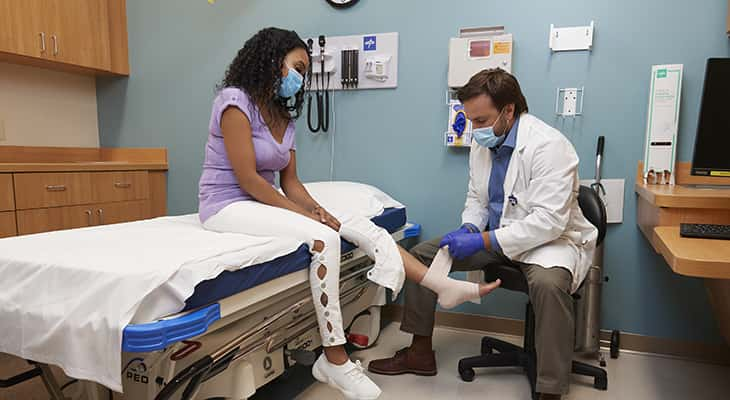Urgent care centers have become a valuable addition to the healthcare landscape, offering a middle ground between primary care physicians and emergency rooms. They provide timely medical attention for non-life-threatening illnesses and injuries, bridging the gap between scheduled appointments and critical emergencies. However, before you head to an urgent care facility, it’s essential to understand a few key points to make the most of your visit. Here are six things to know about urgent care before you go:
- Scope of Services: Urgent care centers are equipped to handle a wide range of non-emergency medical conditions, including minor injuries, infections, flu symptoms, and more. They typically have on-site X-ray and lab facilities, allowing for quick diagnostic tests. However, if you’re facing a severe or life-threatening situation, such as chest pain, severe bleeding, or difficulty breathing, it’s best to seek help at an emergency room.
- Wait Times: While urgent care centers are known for providing quicker care than emergency rooms, wait times can still vary. Patients are generally seen on a first-come, first-served basis. To save time, consider using online check-in systems if the facility offers them. Additionally, try to visit during less busy hours, like early mornings or weekdays, to minimize wait times.
- Cost Considerations: Before visiting an urgent care center, understand your insurance coverage. Many urgent care facilities accept major insurance plans, but it’s always wise to confirm. If you don’t have insurance, urgent care costs are often lower than emergency room expenses, making them a cost-effective option for minor medical needs. However, it’s still important to inquire about fees upfront to avoid surprises.
- Medical Records: Even though urgent care centers provide immediate care, your regular primary care physician might not automatically receive a record of your visit. It’s a good practice to inform your primary care doctor about your urgent care visit so that your medical records remain comprehensive and up-to-date. This continuity of care ensures that all relevant parties are aware of your health status.
- Follow-Up Care: Urgent care centers are adept at addressing immediate health concerns, but they might not offer extensive follow-up care. If your condition requires ongoing treatment or monitoring, your urgent care provider may refer you to a specialist or recommend a follow-up appointment with your primary care physician. Be sure to understand the recommended next steps for your recovery.
- Location and Hours: Urgent care centers are strategically located to provide convenient access to medical care without the long wait times of emergency rooms. Research nearby centers and their operating hours before you need them. Knowing the nearest urgent care facility and its operational schedule can save you time when an unexpected medical situation arises.
In conclusion, urgent care centers are valuable resources for timely medical attention for non-life-threatening issues. Being informed about the scope of services, wait times, costs, medical records, follow-up care, and facility locations can ensure a smooth and effective urgent care experience. While they can’t replace your regular primary care physician, they do offer a reliable alternative when immediate medical care is needed.




